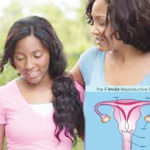Mrs Fanimokun, speaking at a sensitisation workshop on NUHRI’s life Planning for Adolescent and Youths for journalists, said many adolescent and youths still find it difficult walking into a youth-friendly centre even for information on reproductive health.
She said until these centres are made to offer a total package of care for them, rather than only reproductive health services, the stigma will persist.
Mrs Fanimokun declared that lack of reproductive health and family health information is a still a major problem of youths, even from a needs assessment survey the organisation carried out in Oyo State.
According to her, “Many youths attach a stigma to these designated youth-friendly centres because every youth that goes in is seen as promiscuous. These centres must be able to offer a total package of care to them and youth-friendly services should be introduced to every health facility.”
Mrs Fanimokun said increasing practices such as younger girls being sexually active with older generations, youths cohabiting as couples in the higher institutions (couple’s life); abuse of emergency pills was on the rise.
“Emergency pills are not supposed to be used more than four times in a year, but a lot resort to using it almost every week. They take it as if it is Vitamin C. Chemists say it is one of their moving products.
”Youths need to be armed with correct and adequate reproductive health information; life planning helps them to make life choices and healthy decisions about their reproductive health; they are armed with life skills to help them achieve a healthy attitude.”
State Team leader of NURHI, Mrs. Stella Akinso said many family planning service biases, adding, “it is wrong to ask questions related to age, spousal consent, parity and so on. Family planning is an intrinsic human right. So, the government should provide all that is required to ensure quality family planning services.”
She declared that population explosion may not go well with Nigeria’s development, adding “culture is dynamic and so we have to change with time.”
Development Communications (DEVCOMS) Network representative, Mr Bolade Adepegba said there was the need for an appropriate media perspective on reproductive health, stressing that there must be a continuous reinforcement of risky sexual habits in the country.






